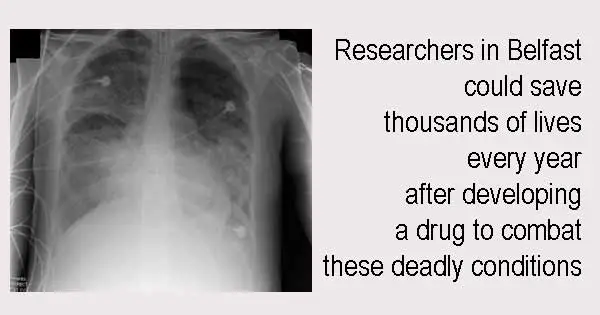Researchers at Queen’s University, Belfast have come up with a ground breaking method of combating blood poisoning and organ damage, which could save thousands of lives.
Sepsis, or its complication, Acute Respiratory Distress Syndrome (ARDS), claims tens of thousands of lives in Ireland and the UK and is one of the most common causes of death to hospitalised patients.
Sepsis occurs when the body’s immune system is in overdrive and causes reactions including numerous inflammations.

It can cause a significant decrease in blood pressure, which in turn can inhibit blood supply to vital organs.
Sepsis and ARDS cost the UK NHS a staggering £2.5bn per year and there is currently no effective treatment.
However, an anti-inflammatory drug that has been developed at Queen’s University may become the answer, and could be trailed in patients as early as 2017.
Professor Chris Scott from Queen’s School of Pharmacy said: “What we have developed is an anti-inflammatory nanoparticle, a microscopic particle that binds itself to cells called macrophages, which are often found at the site of an infection.
“We have found that this nanoparticle essentially blocks inflammation and interrupts the chain of reactions that lead to severe sepsis and ARDS.”
Professor Danny McAuley of Queen’s University said: “This is an exciting development and an excellent example of the potentially life-changing and life-saving impact of Queen’s research.
There is a 25% likelihood that a person who has Sepsis will develop ARDS, which prevents the lungs from transferring enough oxygen around the body. Around half of the people who develop ARDS will die.
Professor McAuley continued: “There is a huge clinical need for a drug to fight the inflammation caused by sepsis and ARDS that causes so much damage to the body.
“Through this research, we are well on our way to developing that drug and, with the right funding and strategic partnerships, we could see it being trialled in patients in as little as two or three years.”